Scientists at WACCBIP Conference Urge African Governments to Fund Local Research
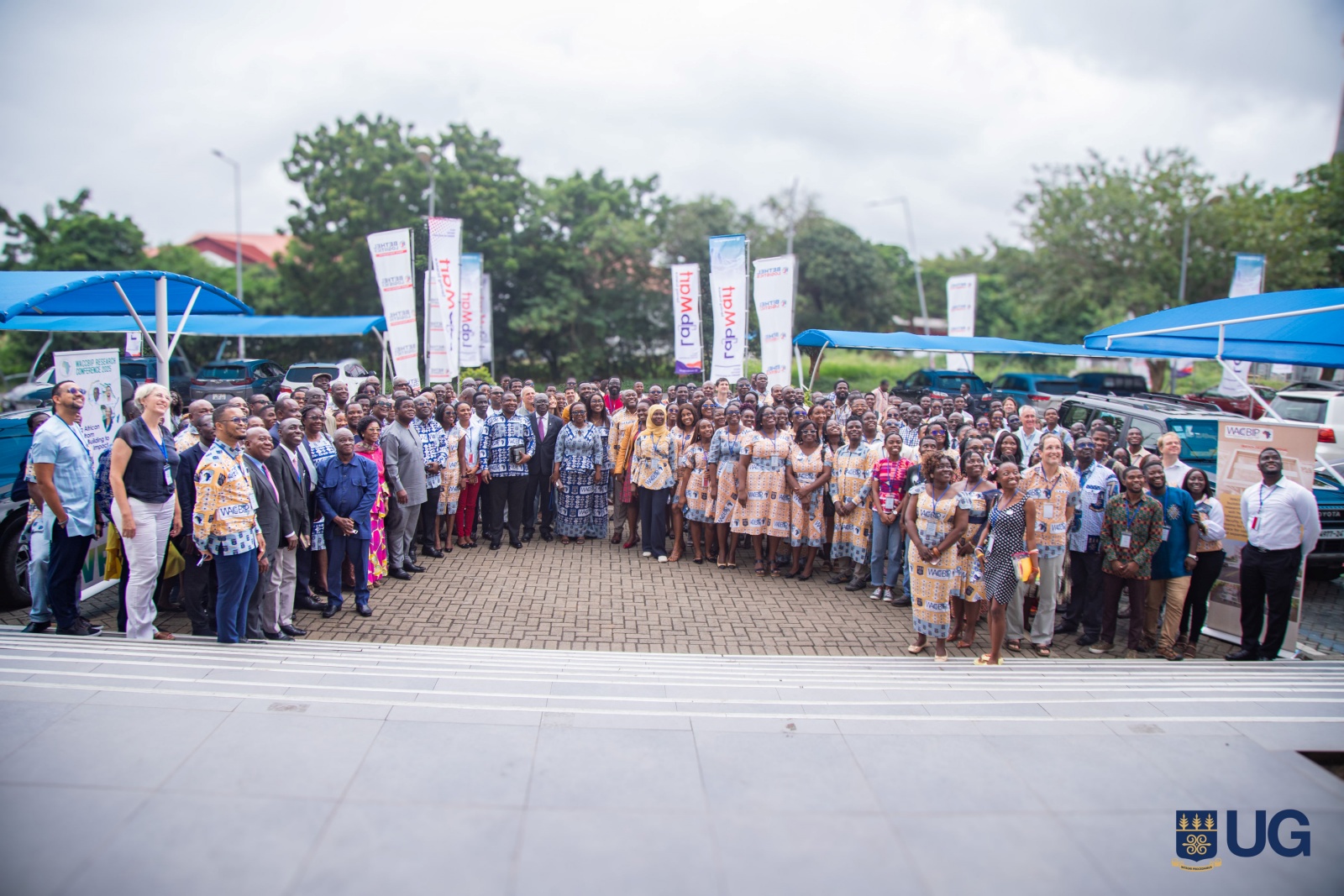
Leading African scientists have urged governments across the continent to make long-term investments in scientific research to sustain progress and protect local innovation from shifting foreign priorities.
They made the call during the opening ceremony of the 9th WACCBIP Research Conference (WRC 2025), held at the University of Ghana from July 23 to 25. Organised by the West African Centre for Cell Biology of Infectious Pathogens (WACCBIP), the annual gathering brings together researchers, policymakers, students and industry leaders to share findings, discuss emerging health challenges and promote African-led science.
This year’s theme, “Evolving African Science: From Capacity Building to Discovery and Impact,” underscores the Centre’s goal to move beyond foundational training towards globally impactful research and innovation.
Delivering opening remarks at the Conference, Prof. Gordon Awandare, Founding Director of WACCBIP and Pro Vice-Chancellor in charge of Academic and Student Affairs at UG, painted a sobering picture of the current state of global science. He warned that African research systems, heavily reliant on international support, are vulnerable to sudden shifts in political priorities outside the continent.
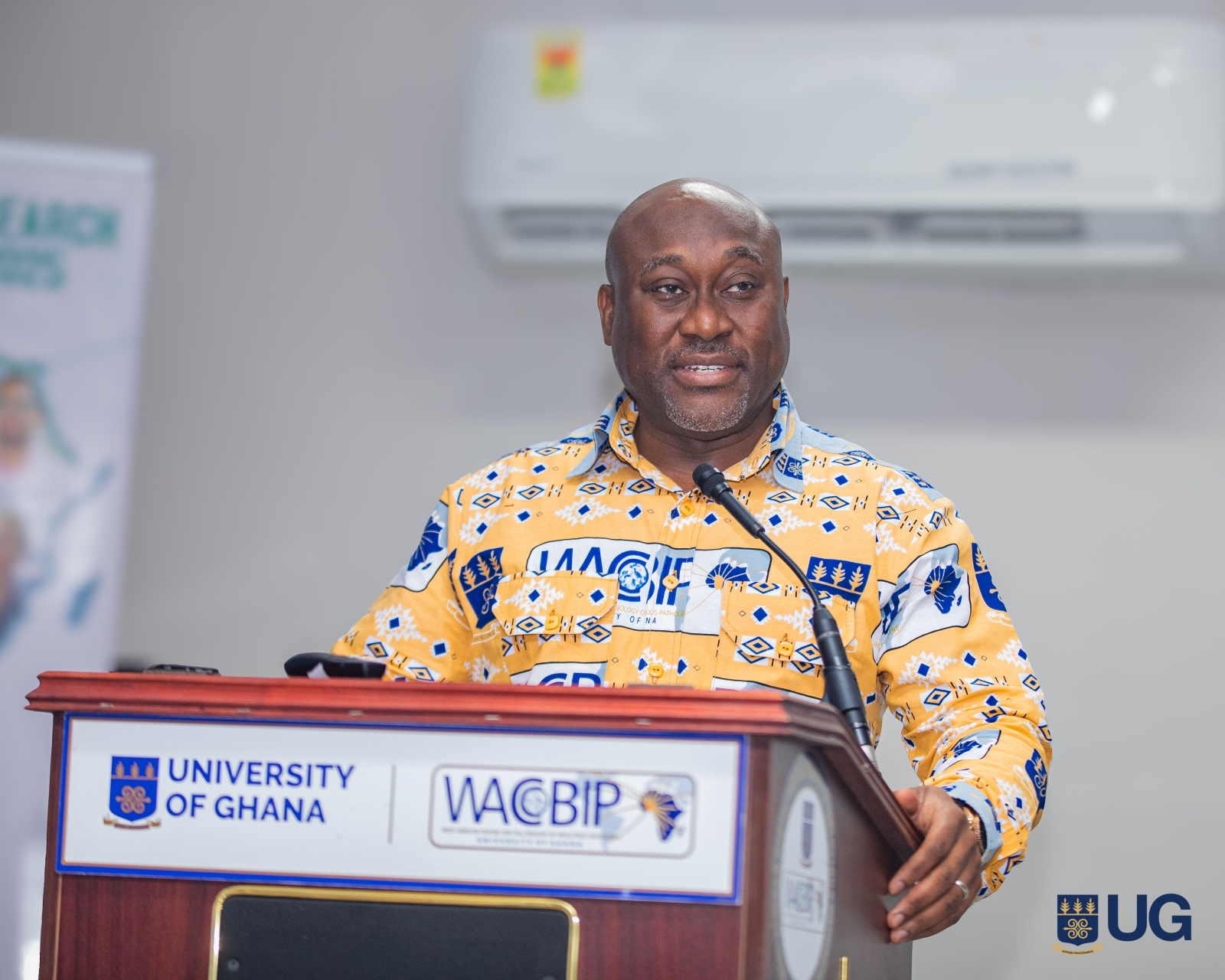
“We are meeting at a time of profound uncertainty for research, not due to a lack of talent or innovation, but because of shifting political priorities in major donor countries,” he said. “The recent change in government in the US has already led to cancelled grants, discarded proposals and entire research programmes being thrown into jeopardy.”
Prof. Awandare called for more substantial African ownership of the scientific agenda. “Science cannot continue to rely on systems so vulnerable to political disruption,” he said. “If we want to keep our brightest minds here, we must create an environment where they can actually thrive. Research is not charity, it is a smart investment and it is time our governments start treating it that way.”
Prof. Felix Ankomah Asante, Pro Vice-Chancellor in charge of Research, Innovation and Development at the University of Ghana, who opened the Conference on behalf of the Vice-Chancellor, praised the groundbreaking work of WACCBIP researchers, saying their outputs extend beyond academic publications to shape clinical practice and public health policies.
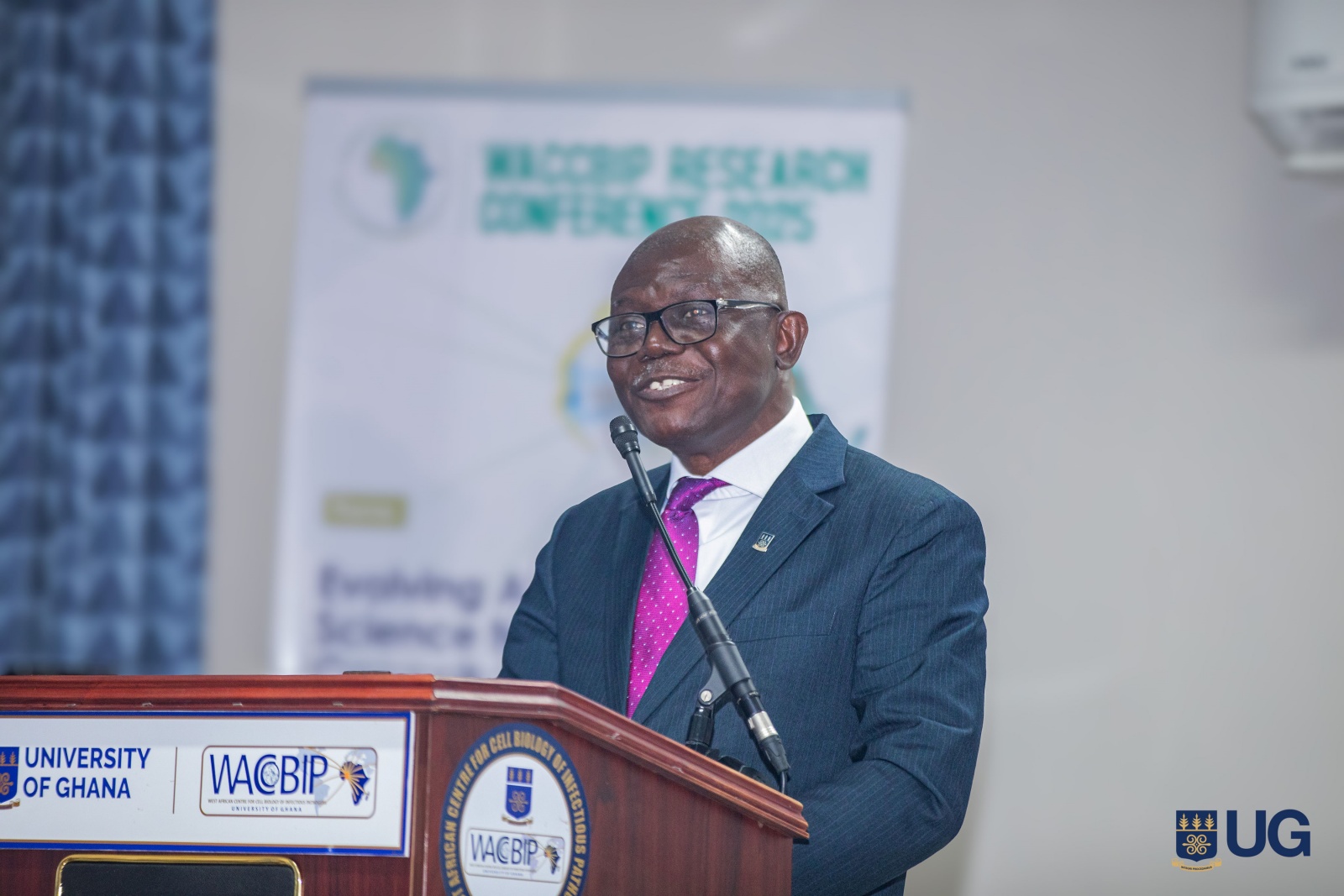
“WACCBIP’s students, fellows and faculty are producing research that transforms communities in Ghana and across the continent,” Prof. Asante said. “This Centre is a strategic pillar in our vision of achieving global impact through innovative research, teaching and learning, using a technology-driven and people-centred approach. Let this Conference be a celebration of solutions and possibilities right from Africa.”
Other speakers at the opening also highlighted the Centre’s role in grooming young African scientists. Prof. Sandow Mark Yidana, Provost of the College of Basic and Applied Sciences (CBAS), said the biggest challenge facing African universities is not talent, but a lack of structural support.
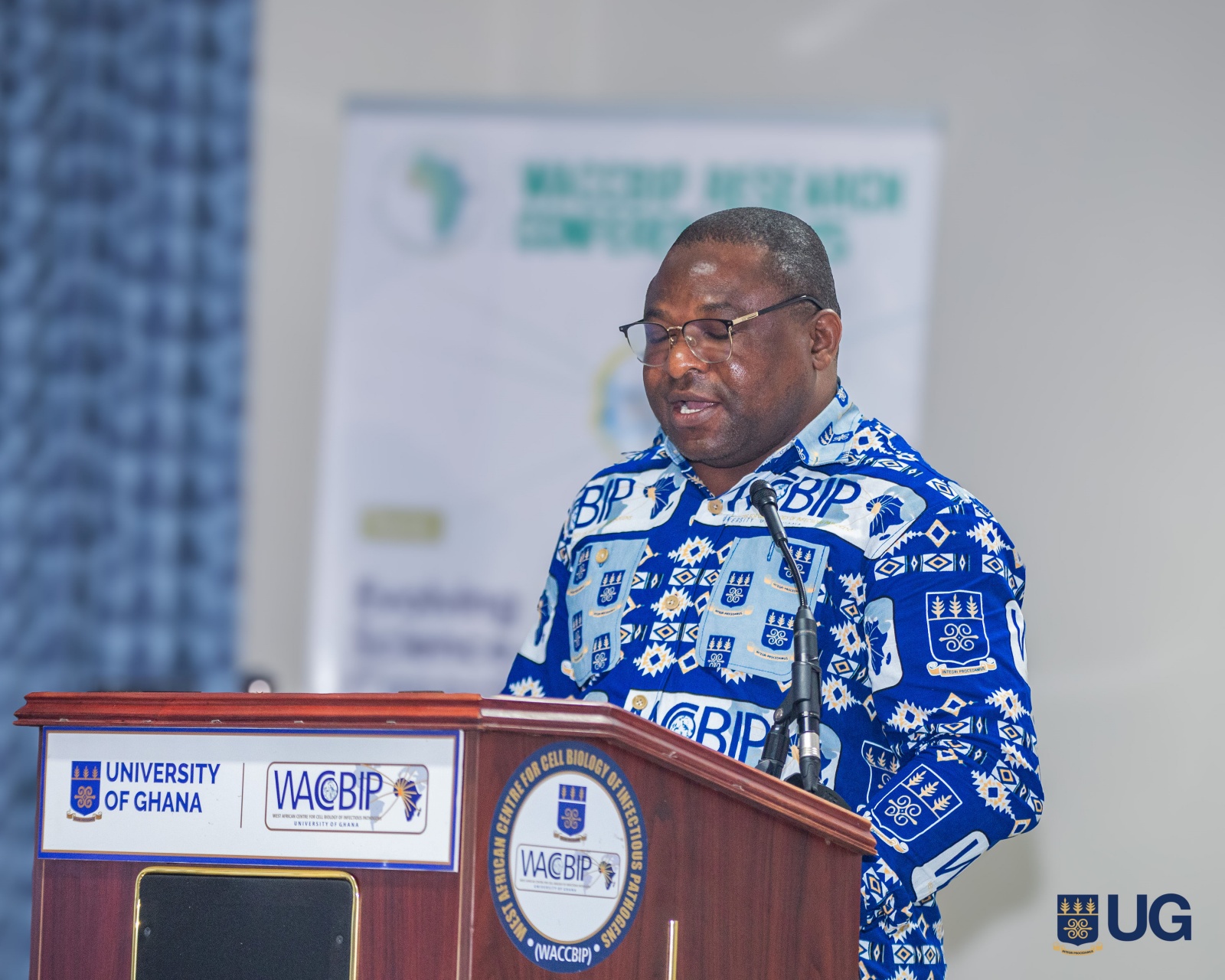
“Young scientists have passion and ideas, but many are stuck in underfunded systems with limited opportunities to grow or stay in research long-term,” he said. “Without reliable local funding, we’re too dependent on external donors and when their priorities shift, our progress stalls.”
Prof. Yidana noted that the College hosts two World Bank Centres of Excellence, WACCBIP and the West Africa Centre for Crop Improvement (WACCI) and called for more investment in academic research and university–industry partnerships.
Emerita Prof. Isabella Quakyi, President of the Ghana Academy of Arts and Sciences, said African science is “rewriting the narrative,” with institutions like WACCBIP showing that innovation and leadership can emerge from the continent.
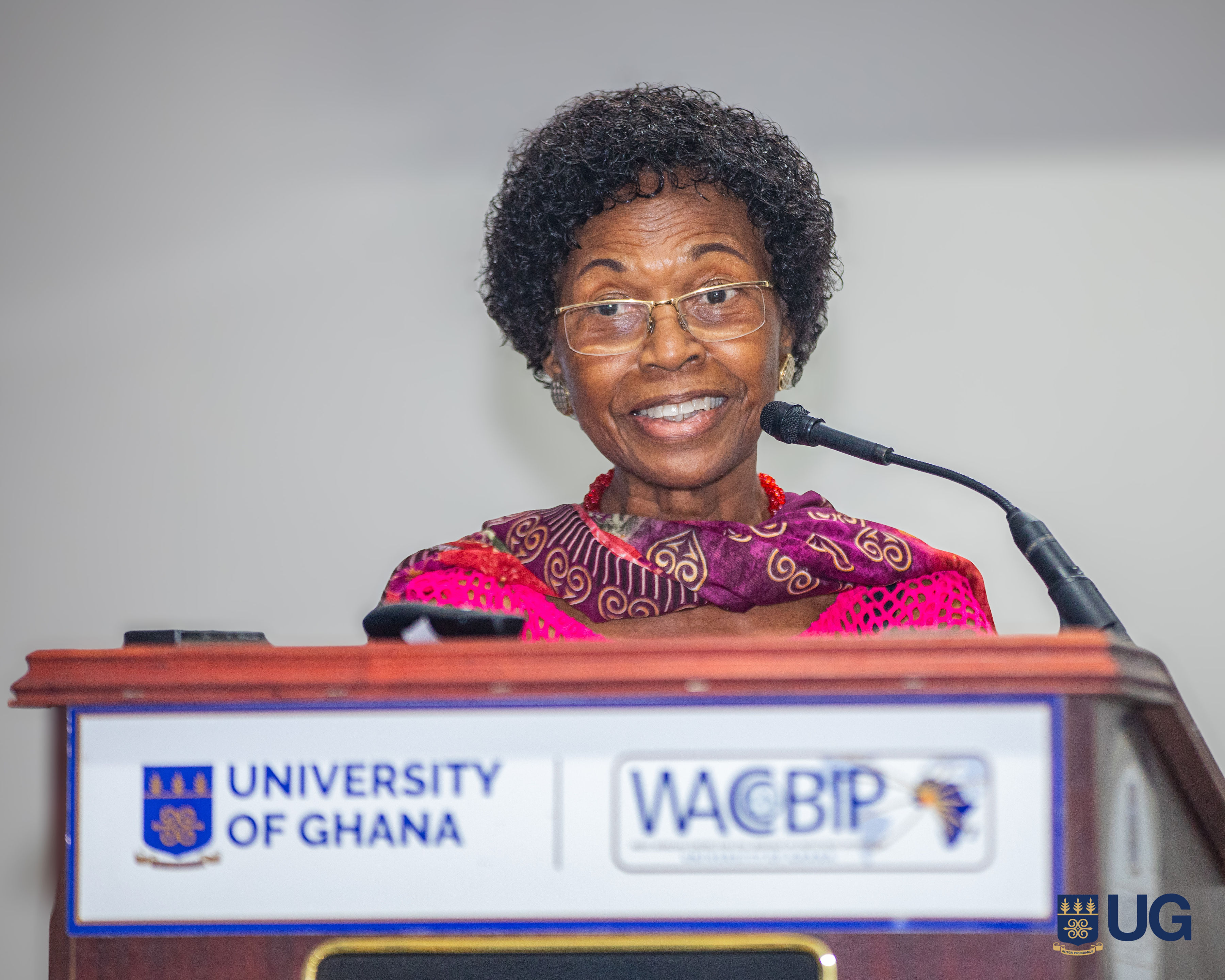
“This is a space where mentorship, collaboration and innovation thrive,” she said. “We are empowering African researchers to be leaders and change-makers, which will take us beyond being recipients of knowledge. But science that does not touch lives is incomplete. We must turn discoveries into real improvements in health, economic growth and prosperity.”
Delivering the keynote address, Dr. Emma Wall, Senior Clinician Scientist at the Francis Crick Institute, UK, shared insights from her research on the evolving immunity to SARS-CoV-2 variants. She recalled how early in the pandemic, her team, in partnership with University College London Hospitals and Health Services Laboratories, launched an occupational health testing programme that helped keep the UK’s healthcare workforce safe.
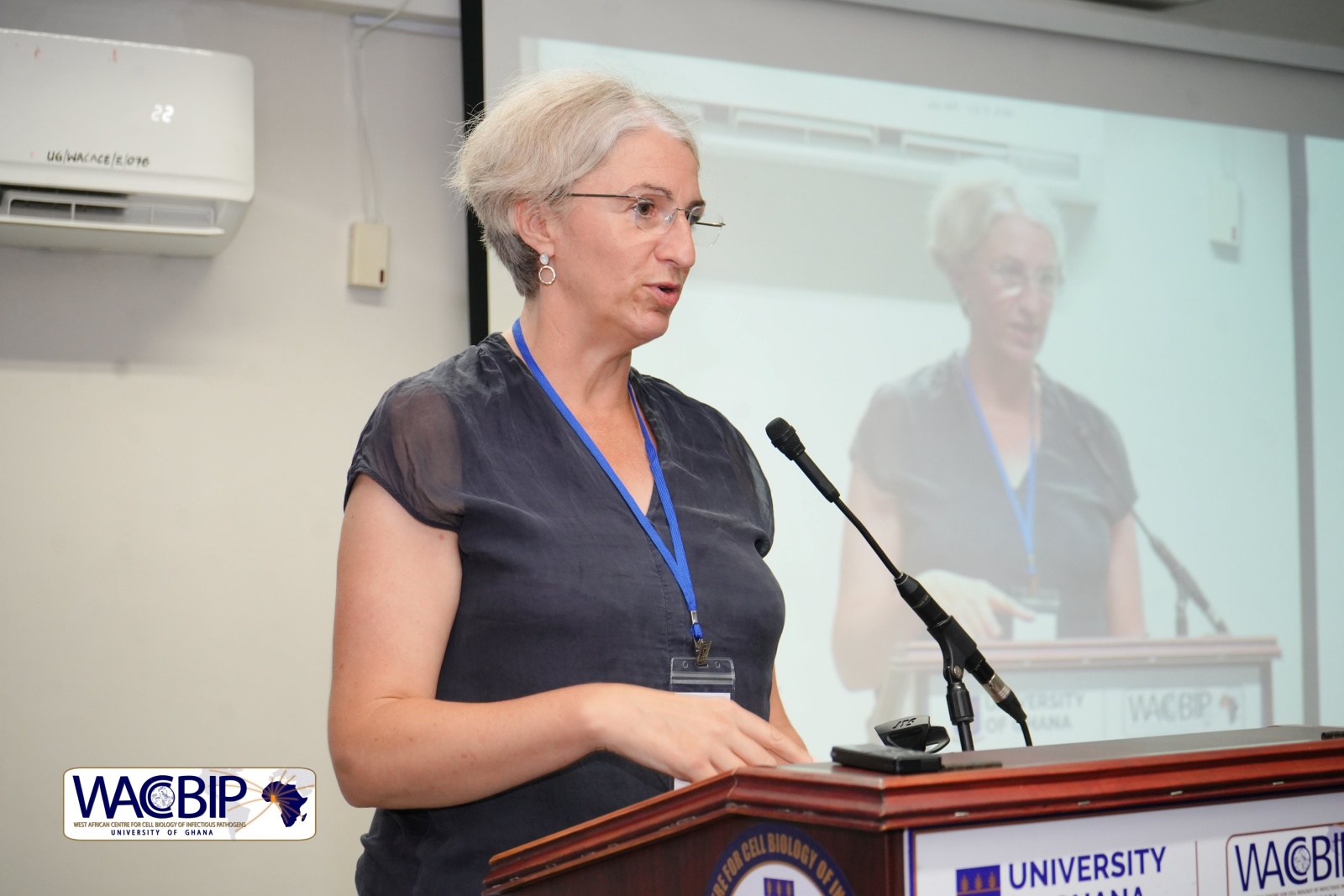
“By providing testing to frontline workers, we were able to keep hospitals running and detect several variants early,” she said. “We built a collaborative cohort that allowed real-time data sharing and rapid policy support.”
Dr. Wall noted that recent findings show some immunity to emerging variants through repeated antigen exposure but warned that further studies are needed to model and predict future virus behaviour. “We need to move from reacting to predicting and possibly begin developing vaccines ahead of upcoming variants,” she said.
She emphasised the need for sustained investment in local research systems, stressing that institutions like WACCBIP are vital for Africa’s long-term disease control, genomic surveillance and pandemic preparedness. “Centres like WACCBIP have become relevant stakeholders in global science and are essential to global health security,” she added.
This year’s conference is being held as a hybrid event, with a major in-person component at the WACCBIP Conference Hall and a virtual component to enable broader participation. The three-day event features more than 60 presentations under eight thematic areas, including host-pathogen interactions, molecular diagnostics, drug resistance and non-communicable diseases.
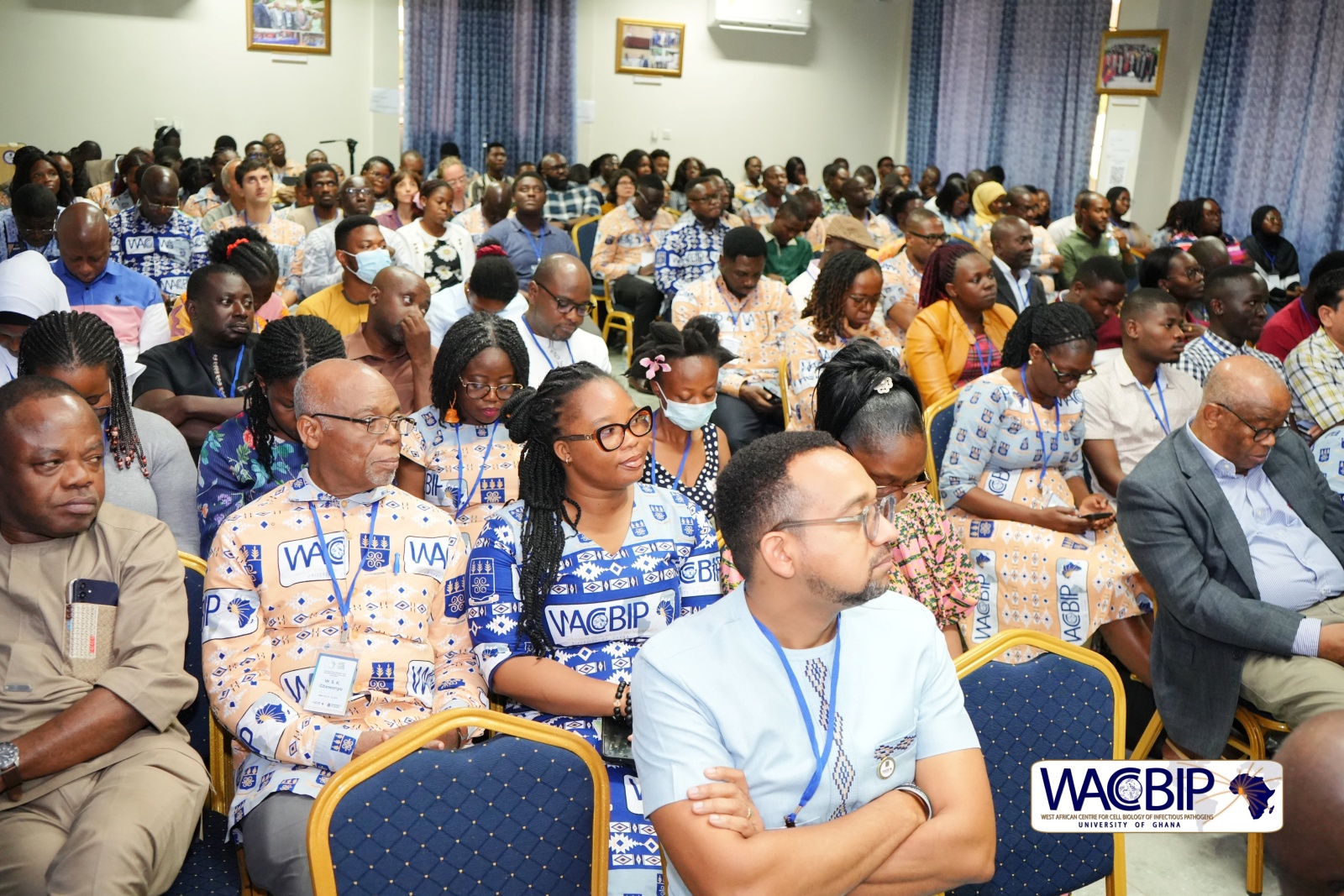
The Conference also received support from several institutions, including the Science for Africa Foundation, GIZ and LabMart.
Dr. Fatu Badiane, speaking on behalf of the Science for Africa Foundation, said the Foundation is committed to building sustainable African research ecosystems. “We aim to nurture globally competitive science leaders, strengthen partnerships and networks and drive long-term impact,” she said. “It’s a vision rooted in Africa’s potential and one that aligns powerfully with WACCBIP’s mission.”
Representing GIZ, Viktor Siebert said the organisation was proud to partner with WACCBIP in strengthening pharmaceutical R&D and local manufacturing in Africa. LabMart, another sponsor, highlighted its commitment to providing research labs with trusted tools and technologies.
Participants are expected to explore pathways to elevate African-led research, improve health outcomes and drive innovation from within the continent as the Conference continues.